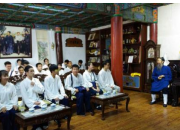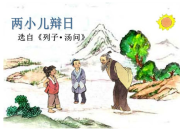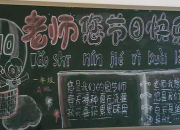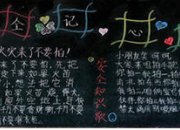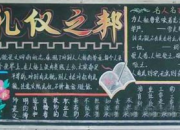大学英语演讲稿
时间:2021-08-31大学英语演讲稿
大学英语演讲稿1
Mr. Chairman, Senator Thurmond, members of the committee, my name is Anita F. Hill, and I am a professor of law at the University of Oklahoma. I was born on a farm in Okmulgee County, Oklahoma, in 1956. I am the youngest of 13 children. I had my early education in Okmulgee County. My father, Albert Hill, is a farmer in that area. My mother's name is Irma Hill. She is also a farmer and a housewife.

My childhood was one of a lot of hard work and not much money, but it was one of solid family affection, as represented by my parents. I was reared in a religious atmosphere in the Baptist faith, and I have been a member of the Antioch Baptist Church in Tulsa, Oklahoma, since 1983. It is a very warm part of my life at the present time.
For my undergraduate work, I went to Oklahoma State University and graduated from there in 1977. I am attaching to this statement a copy of my resume for further details of my education.
I graduated from the university with academic honors and proceeded to the Yale Law School, where I received my JD degree in 1980. Upon graduation from law school, I became a practicing lawyer with the Washington, DC, firm of Ward, Hardraker, and Ross.
In 1981, I was introduced to now Judge Thomas by a mutual friend. Judge Thomas told me that he was anticipating a political appointment, and he asked if I would be interested in working with him. He was, in fact, appointed as Assistant Secretary of Education for Civil Rights. After he had taken that post, he asked if I would become his assistant, and I accepted that position.
In my early period there, I had two major projects. The first was an article I wrote for Judge Thomas' signature on the education of minority students. The second was the organization of a seminar on high-risk students which was abandoned because Judge Thomas transferred to the EEOC where he became the chairman of that office.
During this period at the Department of Education, my working relationship with Judge Thomas was positive. I had a good deal of responsibility and independence. I thought he respected my work and that he trusted my judgment. After approximately three months of working there, he asked me to go out socially with him.
What happened next and telling the world about it are the two most difficult things -- experiences of my life. It is only after a great deal of agonizing consideration and sleepless number -- a great number of sleepless nights that I am able to talk of these unpleasant matters to anyone but my close friends.
I declined the invitation to go out socially with him and explained to him that I thought it would jeopardize what at the time I considered to be a very good working relationship. I had a normal social life with other men outside of the office. I believed then, as now, that having a social relationship with a person who was supervising my work would be ill-advised. I was very uncomfortable with the idea and told him so.
I thought that by saying no and explaining my reasons my employer would abandon his social suggestions. However, to my regret, in the following few weeks, he continued to ask me out on several occasions. He pressed me to justify my reasons for saying no to him. These incidents took place in his office or mine. They were in the form of private conversations which would not have been overheard by anyone else.
My working relationship became even more strained when Judge Thomas began to use work situations to discuss sex. On these occasions, he would call me into his office for reports on education issues and projects, or he might suggest that, because of the time pressures of his schedule, we go to lunch to a government cafeteria. After a brief discussion of work, he would turn the conversation to a discussion of sexual matters.
His conversations were very vivid. He spoke about acts that he had seen in pornographic films involving such matters as women having sex with animals and films showing group sex or rape scenes. He talked about pornographic materials depicting individuals with large penises or large breasts involved in various sex acts. On several occasions, Thomas told me graphically of his own sexual prowess.
Because I was extremely uncomfortable talking about sex with him at all and particularly in such a graphic way, I told him that I did not want to talk about these subjects. I would also try to change the subject to education matters or to nonsexual personal matters such as his background or his beliefs. My efforts to change the subject were rarely successful.
Throughout the period of these conversations, he also from time to time asked me for social engagements. My reaction to these conversations was to avoid them by eliminating opportunities for us to engage in extended conversations. This was difficult because at the time I was his only assistant at the Office of Education -- or Office for Civil Rights.
During the latter part of my time at the Department of Education, the social pressures and any conversation of his offensive behavior ended. I began both to believe and hope that our working relationship could be a proper, cordial, and professional one.
When Judge Thomas was made chair of the EEOC, I needed to face the question of whether to go with him. I was asked to do so, and I did. The work itself was interesting, and at that time it appeared that the sexual overtures which had so troubled me had ended. I also faced the realistic fact that I had no alternative job. While I might have gone back to private practice, perhaps in my old firm or at another, I was dedicated to civil rights work, and my first choice was to be in that field. Moreover, the Department of Education itself was a dubious venture. President Reagan was seeking to abolish the entire department.
For my first months at the EEOC, where I continued to be an assistant to Judge Thomas, there were no sexual conversations or overtures. However, during the fall and winter of 1982, these began again. The comments were random and ranged from pressing me about why I didn't go out with him to remarks about my personal appearance. I remember his saying that some day I would have to tell him the real reason that I wouldn't go out with him.
大学英语演讲稿2
Man’s life is a process of growing up, actually I’m standing here is a growth。 If a person’s life must constituted by various choices, then I grow up along with these choices。 Once I hope I can study in a college in future, however that’s passed, as you know I come here, now I wonder what the future holds for (= what will happen to) me。
When I come to this school, I told to myself: this my near future, all starts here。 Following I will learn to become a man, a integrated man, who has a fine body, can take on important task, has independent thought, an open mind, intensive thought, has the ability to judge right and wrong, has a perfect job。
Once my teacher said :” you are not sewing, you are stylist; never forget which you should lay out to people is your thought, not craft。” I will put my personality with my interest and ability into my study, during these process I will combine learning with doing。 If I can achieve this “future”, I think that I really grow up。 And I deeply believe kindred, good-fellowship and love will perfection and happy in the future。
How to say future Maybe it’s a nice wish。 Lets make up our minds, stick to it and surely well enjoy our life。



